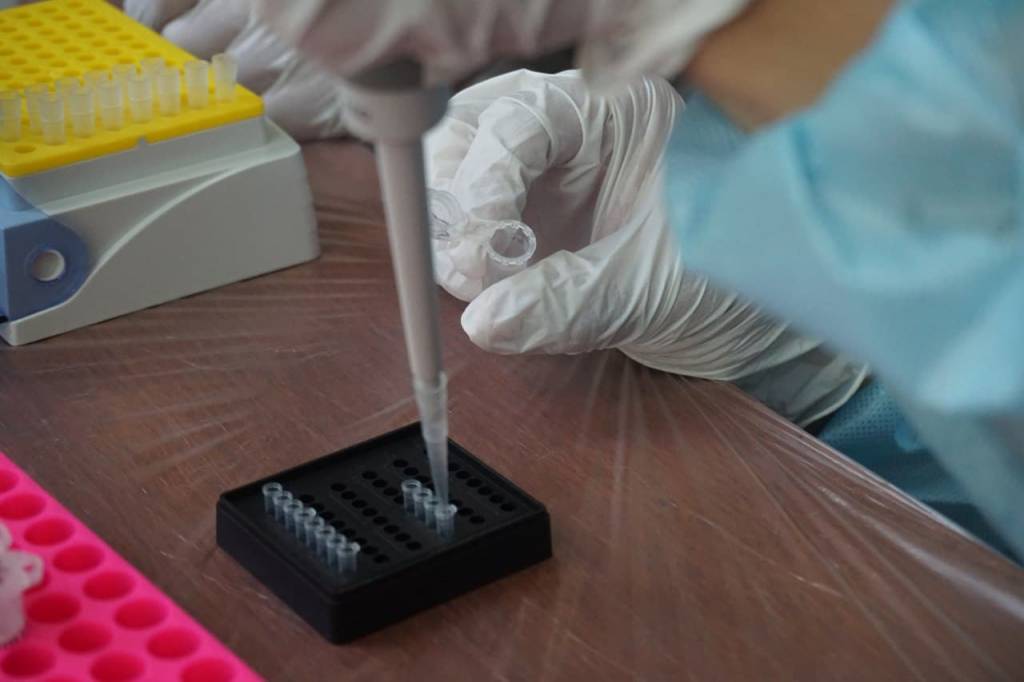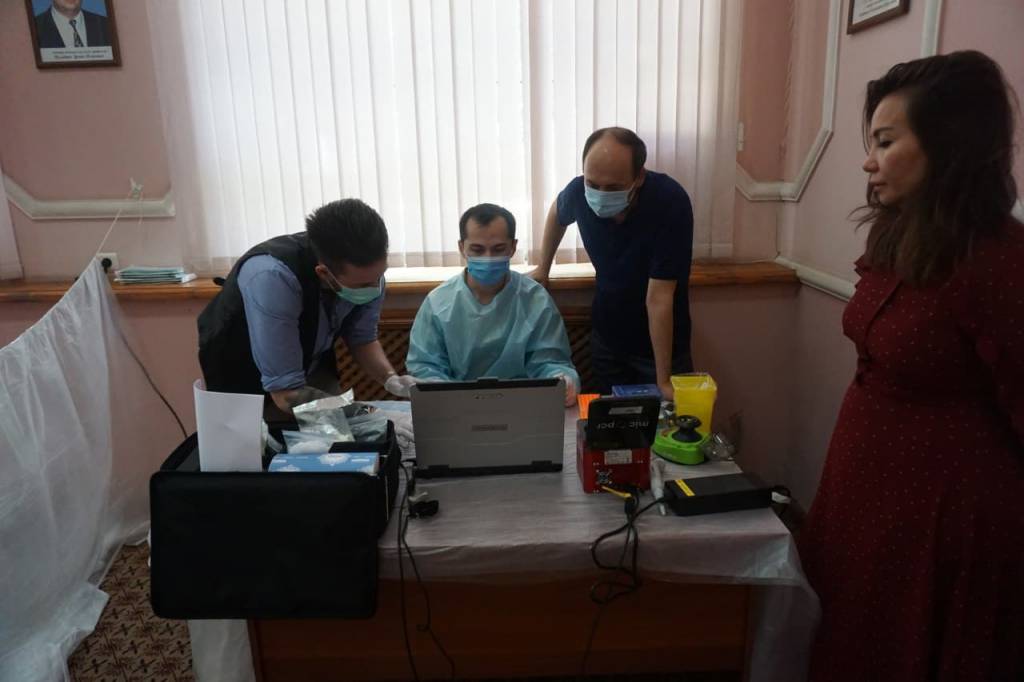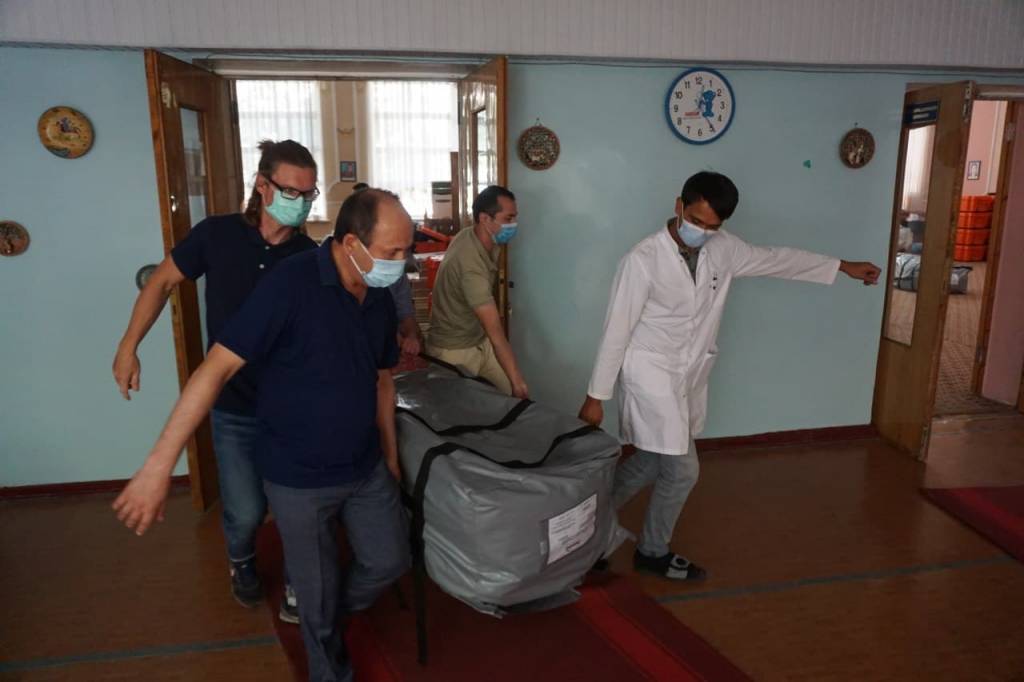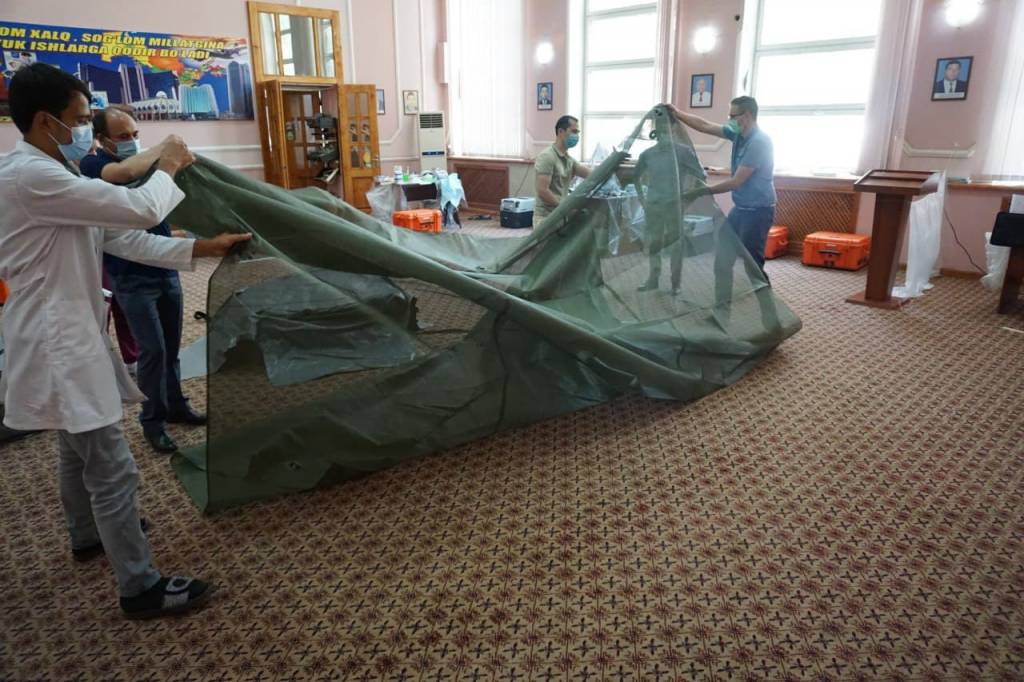
German experts from the Bundeswehr Institute of Microbiology are visiting Uzbekistan 1-13 November 2021 as part of the effort under EU CBRN CoE Project 53 to provide two diagnostic mobile laboratory units to Uzbekistan.
These laboratories will aid Uzbekistan in increasing its capacities to respond to disease outbreaks. As part of this visit, discussions were held on the scheduling of the next trainings and two field exercises during the coming years as well as other related issues.
It is important to remind that the recipients of two mobile labs are the Research Institute of Virology (RIV) and Research Institute of Epidemiology, Microbiology and Infectious Diseases (RIEMID), both under the Ministry of Health of the Republic of Uzbekistan.

It is important to note that the provided mobile laboratories will also be used to conduct research and scientific work on the methodology of detection of different types of diseases and other biological risks.
Mobile laboratory units are an effective and well-established measure to expand diagnostic laboratory capacities during outbreak situations, especially in sight of the current global continuing COVID-19 pandemic, and the Bundeswehr Institute of Microbiology is looking forward to continue to implement this project together with both Uzbek institutes.

The two mobile labs and associated trainings are provided through EU CBRN CoE Project 53, which is implemented by the International Science and Technology Center (ISTC). Project 53 was conceived and funded within the framework of the EU CBRN CoE (www.cbrn-coe.eu) initiative. The CoE currently covers 8 regions and 62 partner countries. The EU CBRN CoE Secretariat for Central Asia is based in Tashkent, Uzbekistan. It works in partnership with countries to encourage local ownership of CBRN action plans, policies and joint preparation of regional project proposals. The ISTC (www.istc.int), the implementer of Project 53, has funded and managed several hundred projects in Central Asia over the past 20 years.

The EU CBRN CoE Initiative is funded by the European Union and implemented in cooperation with the United Nations Interregional Crime and Justice Research Institute (UNICRI) and the European Commission Joint Research Centre (JRC). The initiative is developed with the technical support of relevant international and regional organizations, the EU Member States, and other stakeholders, through coherent and effective cooperation at the national, regional and international levels. The initiative involves over 62 countries in eight regions of the world.
Press Service of the State Committee on Industrial Safety








